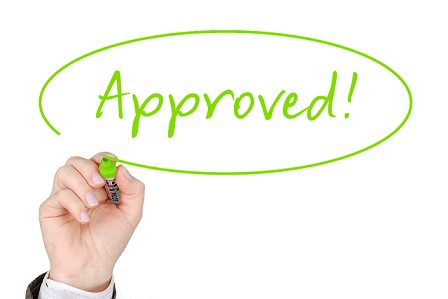That is, if we know how to get the best terms for ourselves. An unsecured personal loan is one of the most attractive types of credit on offer because of their flexibility, speed, and generally lower interest rates (when compared to payday loans and credit cards).
Of course, if you have a ‘good’ credit score, you are more likely to have a variety of options. Those with a FICO credit score that is classed as ‘fair’ (generally between 580 and 699) may find it more difficult to get the best rates and terms.
It’s not impossible, however, as lenders consider affordability as well as credit score. There are also those who specialize in offering loans to those with fair credit scores. Check out this guide filled with tips to help you get the best unsecured personal loan when you have a ‘fair’ credit score!
How to Get the Best Fair Credit Personal Loan
Knowledge is power, and when it comes to getting financial products such as unsecured loans, this is doubly true. Taking the following steps will help you to understand your financial position and get the best possible terms on any personal loan you undertake:
- Decide How Much You Need
Whether you want to buy a car or you are trying to consolidate your debts, sit down and work out how much you actually need before you start looking for unsecured loans. Do you want exactly the amount you need to fulfill your purpose, or a little extra to keep to the side as an emergency stash?
Once you know how much you need, you’ll have a much better idea of which kind of lenders you should be approaching and what monthly repayments could look like.
- Assess Your DTI
Your credit score is important, of course, but lenders also consider your DTI (or Debt-To-Income ratio). Generally speaking, most lenders prefer borrowers who have debt that is equivalent to less than 36% of their monthly income, but there are lenders who will consider those with higher DTI ratios.
If you have a very high debt-to-income ratio, however, you will find it hard to get an unsecured loan and may be offered higher interest rates. If possible, try to pay down your existing debt before you apply for a personal loan, as it will increase your chances of being approved.
- Review Your Credit Report
Your credit score and report are still important, of course, which is why your next step should be to use a free service like Experian to assess your actual credit history report. Make sure everything is in order and there are no mistakes.
Missed payments, collection accounts, and other financial black marks can have a serious impact on your chance of getting a loan. If there are any such marks put there in error, dispute them and have them removed before applying for a loan.
- Chart Your Income and Outgoings
Take an honest review of your income and outgoings. Consider whether you can afford to borrow the amount that you want, and assess what your ideal loan repayment amount is as well as the upper limit you should stick to.
- Research Your Options
There are numerous lenders and banks these days, so take your time in researching those which offer loans to fair credit borrowers. Make a list of those that appeal to you.
- Check Their BBB Accreditation
Once you know which lenders you want to approach, research their standing with the Better Business Bureau and look for any red flags surrounding their business practices or customer service record.
- Look for Soft Check Options
When you apply for a loan in earnest, a lender will perform what is called a ‘hard check’ on your credit history. This will leave a mark, and too many hard checks in a short period will damage your score.
There are also lenders that offer preliminary ‘soft checks.’ These indicate your chance of being offered a loan and what the likely amount and APR would be. The soft checks do not mark your credit history and can identify which lenders are most open to you (but they do not guarantee success).
- Assess Potential APR Ranges
Research the average APR offered, as well as the advertised amount. When credit companies advertise a low APR, it tends to be the rate they offer lenders with great credit scores. Do some reading on forums to find out what they offer to those with fair credit in reality.
- Check Fees, Terms, and Charges
As well as having late fees, some lenders have charges and fees around early repayment and terms that stipulate how the loan can be used. Check these thoroughly before you agree to anything!
- Compare Options Before You Sign
Applying to two or more lenders is a good idea if you want to get the best possible terms. Most lenders allow a grace period for you to think over what they have offered. Compare all positive responses before making a decision and signing an agreement.
(eTN): 10 Tips for Finding the Best Fair Credit Personal Loans Online | re-post license | post content






















